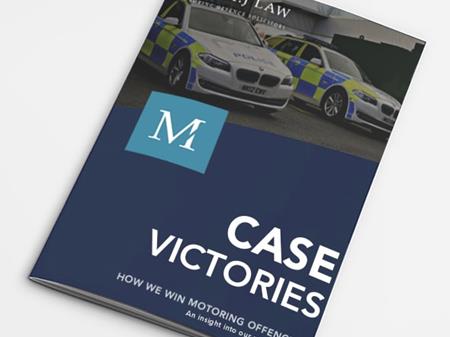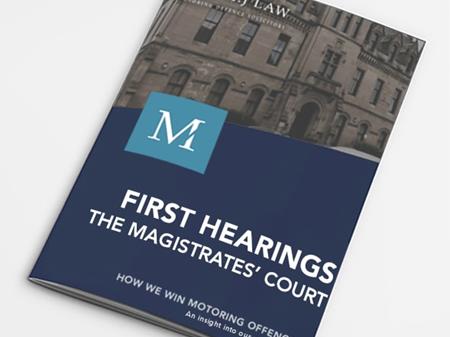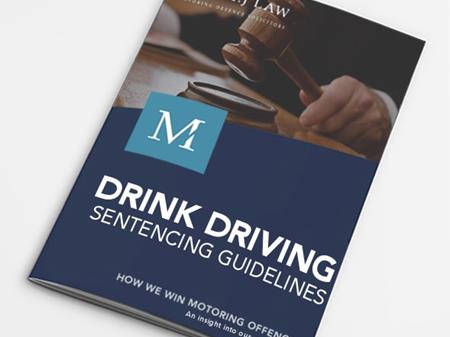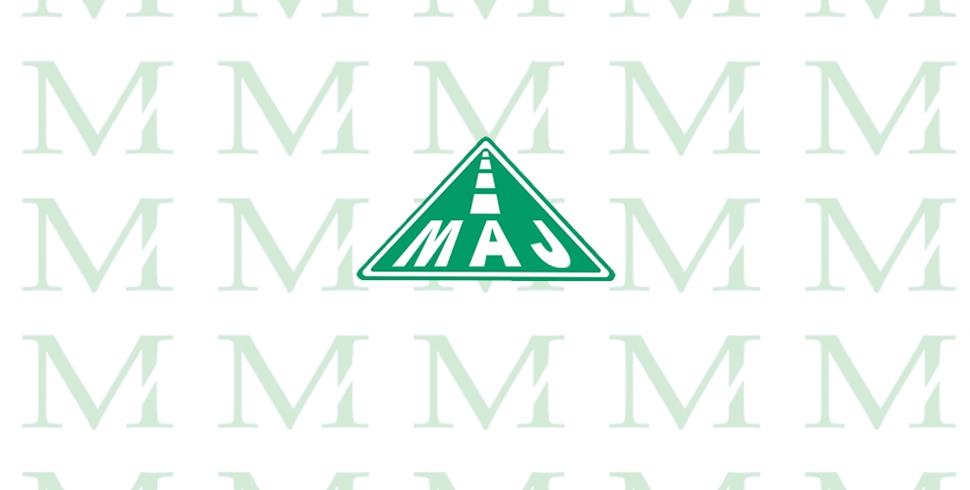Driving Offence Codes - what do they mean?
M.A.J Law are a specialist driving defence firm. We have considerable experience in representing clients charged with serious motoring offences. Whether you want to challenge the case and avoid a ban, or mitigate to reduce the penalty, we can help.
Our team are often asked about offence codes and what they mean. You might be interested to know what offence code applies in your case, or perhaps you've noticed a code and what to know what it means.
To check if your licence contains any offence codes you will need to log-in to DVLA Online. Before you do so, you will need your Driving Licence number and National Insurance number. Once you're in, you can view the status of your driving licence and a history of any endorsements. It will look something like this (assuming you have a clean licence):

If you have previous driving endorsements you may see these appear on your driving record under the 'Penalties and Disqualifications' section. A driving endorsement will not appear on your licence if;
- You have not yet been convicted, or;
- The conviction is spent
If you spot an endorsement which you know nothing about, you could have been convicted of an offence in your absence. If you have been convicted of an offence without knowing, your insurance could be invalid. You may also owe money to the court. To find out what do in these circumstances, click here (anchor link).
Licence Codes
The first thing to know is that there are two different types of offence code;
- Licence Endorsement Codes
- CCCJS Codes
1. Licence Endorsement Codes
A licence endorsement code is a four-digit code added to your driving licence following a motoring conviction. Once this code is added to your licence there is no way to remove it. Below you will find some of the most common endorsement codes.
| Offence | Code | Years on licence |
| Drink Driving | DR10 | 11 |
| Drug Driving | DG10 | 11 |
| Failing to provide a specimen | DR30 | 11 |
| Dangerous Driving | DD40 | 4 |
| Careless Driving | CD10 | 4 |
| Speeding | SP30 | 4 |
| No Insurance | IN10 | 4 |
For a full list of offence codes, check out to the .Gov website.
2. CCCJS Codes
CCCJS Code are different to driving offence codes. You will find your CCCJS code on the charge sheet next to the offence you have been charged with (or below). You can see an example of this here:

CCCJS Codes are more important than you might think. They allow the court and CPS to quickly identify the offence you have been charged with. You should review the offence code on your charge sheet and check the table below. The type of offence you have been charged with will determine the number of penalty points or the risk of a driving ban. You may have a defence to the allegation without knowing. To read more about defences, check out our offence page.
Some of the most common CCCJS codes include:
| Offence | CCCJS Code |
| Drink Driving | RT88007 |
| Drug Driving | RT88585 |
| Failing to provide a specimen | RT88010 |
| Drunk in charge | RT88008 |
| Speeding | Multiple Codes |
| No Insurance | RT88191 |
FAQ - Offence Codes
-
I've noticed an endorsement I know nothing about
You may have been convicted of an offence in your absence. This is likely to have happened where you have not received the summons for court. The most common offence in these circumstances is 'failing to ID the driver' and is identifiable by the following offence code: MS90. If you have been convicted of an offence in your absence you may be able to make a statutory declaration (within 14 days) or a Section 142 application. -
How many penalty points before I'm banned?
If you have been driving longer than 2 years, you can accrue 11 points on your licence before begin banned. If you hit 12 penalty points within a three years period the court will disqualify you for 6 months (unless the court finds exceptional hardship). It is not necessary to re-take your test in these circumstances. If a new driver accrues 6 penalty points in the first 2 years their licence will be revoked by the DVLA. This means you will need to retake your test (theory and practical). -
Can I apply for an endorsement to be removed from my licence?
No. Once a person has been convicted of a motoring offence there is no way of removing the licence code (unless that person was convicted in their absence and has reopened the case). If you lost your driving licence, you may be able to apply for your licence back early under Section 42 RTOA 1988. -
Will I have to go to court?
Not all motoring offences end up in court. As a rule of thumb, you will only end up in court if you're at risk of a driving disqualification (either by 'totting-up' or because the offence carries a driving ban). If you have received a court date it is important that you contact us immediately. We may be able to avoid the court hearing or rearrange the date. Many of our cases are discontinued prior to court.
Every motoring offence has a different offence code. If convicted, this code is added to your licence where it will remain for 4 - 11 years (depending upon the offence). There is no way of removing an offence code from your licence following a conviction.
Thinking of pleading guilty?
Our Case Studies take a look a real cases involving real people. You may also be interested in reading about court hearings in the Magistrates' Court and Sentencing Guidelines. You can also view our case studies page for more information.

A Summary of Recent Cases – Marcus A Johnstone
How to win the 'unwinnable' cases...

Drink Driving – Your First Court Hearing
This booklet discusses a drink driving first court hearing - Is a solicitor necessary?

Will you go to prison?
This booklet looks at the Magistrates' Court Sentencing Guidelines for drink driving
Next Steps: Please get in touch to discuss your case with a member of our team to discuss CCCJS Offence Codes. You can use the contact form below or call 01514228020 for free initial advice. You can also use our drink driving ban calculator or check out our video series.







